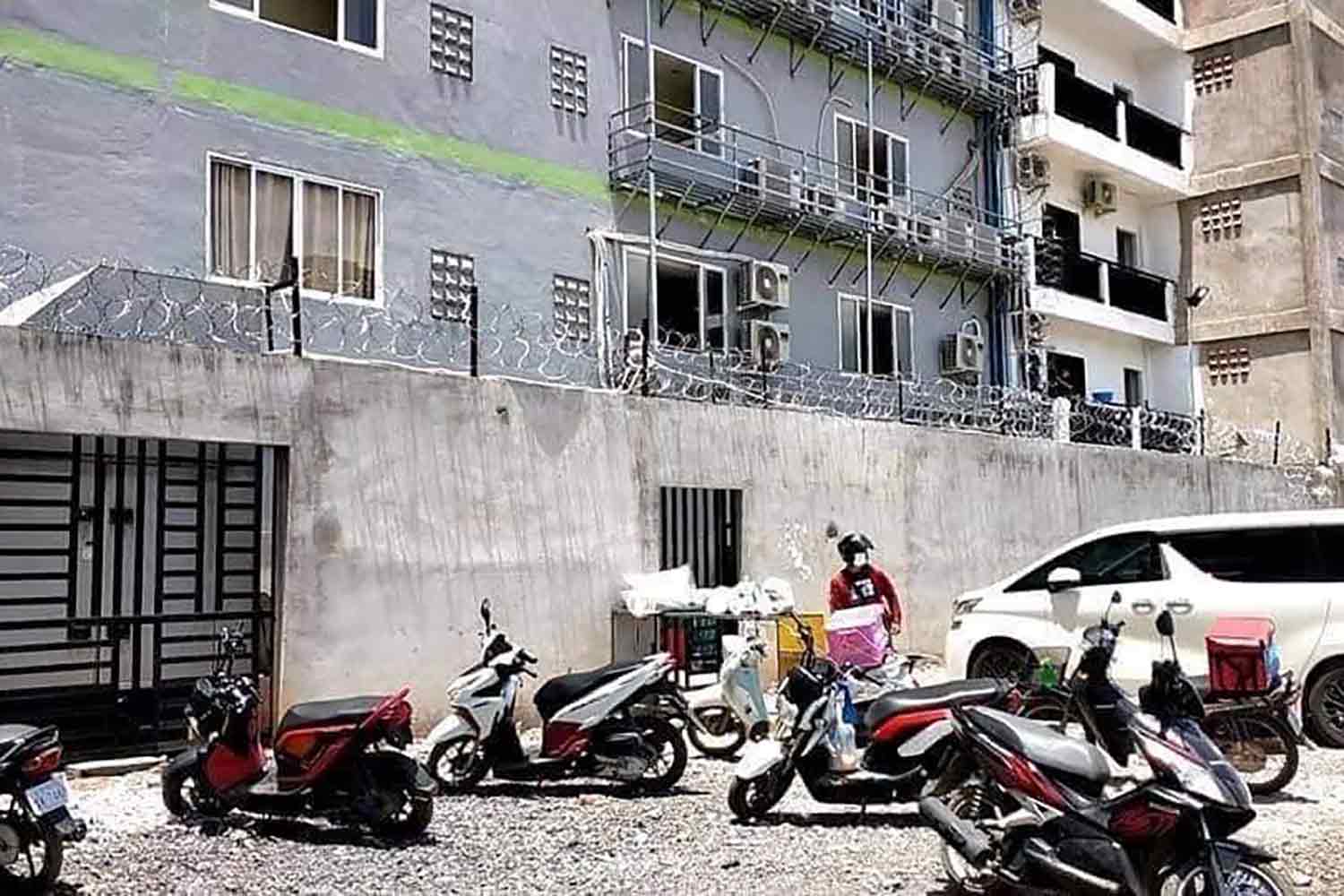
An 18-year-old has sought protection from the Justice Ministry, telling a harrowing story after escaping from a call scam gang he was tricked into working for in Cambodia.
Identifying himself only as Surasak, the teenager said at the ministry on Tuesday he had received threatening phone calls since being helped to escape and return to Thailand.
He said he saw an advertisement on social media for a job in Poipet with a 40,000-baht a month salary and free transport there, and applied for it last September.
He was told to meet a Thai man in Khok Sung district of Sa Kaeo. The man took him illegally across the border to Poipet and left him at a building surrounded by an electrified fence.
There, he said, he saw about 100 other Thais who had been lured into working for call scam gangs. There were also many Filipinos, Indonesians and Malaysians.
"There were rooms for five workers each and they received three meals a day. They were ordered to make scam calls. Each had books containing the information of about 200 Thai people," Mr Surasak said.
Scam callers must pretend to be government officials, phone potential victims and tell the people they were linked with money-laundering and they had to transfer money to the gang.
"Ambient sounds were created to imitate the atmosphere of government offices or police stations to make victims believe they were talking with police or government officials," the man said.
"Believers transferred 2-3 million baht daily to the gang, which had accomplices withdraw the money through ATMs in Aranyaprathet district of Sa Kaeo," he said.
One victim was tricked into transferring a sum of money before taking out a loan from the gang. The victim later made a video call to a gangster to ask for the return of money. The gangster laughed at the victim and said he was a fool.
"The victim shot himself in the head. That shocked everyone who was forced to work for the call scams," Mr Surasak said.
He said Chinese people controlled the illicit business. Anyone who was taken there but later did not want to work for the gang would be assaulted. Men would be then sent to work aboard fishing boats and women would be forced into prostitution, he said.
Those who worked for the gang for one month would be allowed to exit the building to buy personal items. When his turn came, he took the opportunity to phone his mother for help.
His mother coordinated assistance with volunteers from the Facebook page "Survive Saimai". The volunteers picked him up near the border late on Monday night.
Mr Surasak said that since his escape he had received threatening phone calls, and was requesting protection.
Thanakrit Jit-areerat, secretary to the justice minister, said the victim would be taken to file his complaint with police.








